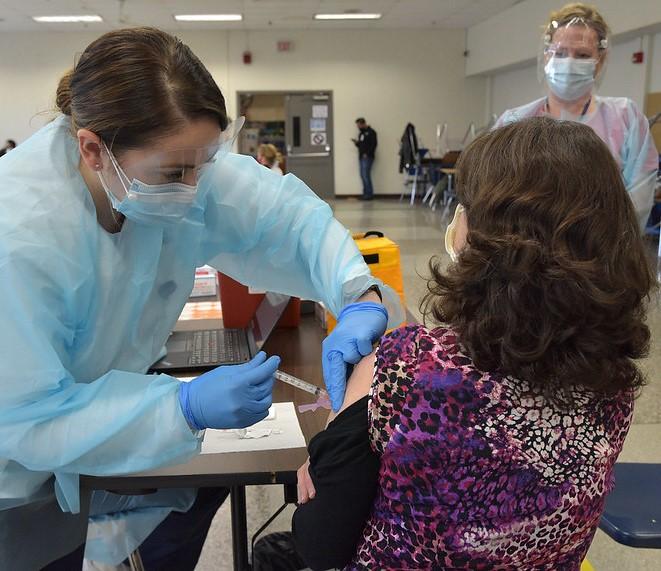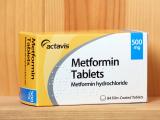A trio of studies in Morbidity and Mortality Weekly Report (MMWR) today show that COVID vaccines protect very well against the Delta (B1617.2) variant, with unvaccinated people having 5 times the risk of infection and more than 10 times the risk of hospitalization or death compared with vaccinated people.
Researchers analyzed data that included the period of Delta variant dominance in the United States, and their results indicate that the Pfizer/BioNTech, Moderna, and Johnson & Johnson vaccines all show strong vaccine effectiveness (VE) against severe COVID-19.
The new data join several studies published this week on high COVID-19 VE.
In the first of today's studies, which looked at US incidence rate ratios (IRRs), the researchers found that, after Delta became the predominant strain, VE for full Pfizer or Moderna vaccination was 90% against hospitalization and 91% against death. But VE dropped from 91% to 78% for any adult COVID-19 infection during the Delta period.
While the IRR study's 570,000-case cohort had a larger pool than the other MMWR studies, those two showed similar patterns. Both used test-negative designs, with a veterans-focused one suggesting a VE of 86.8% against COVID-19 hospitalization and a nine-state surveillance study suggesting a VE of 86% against hospitalization and 82% against emergency department (ED) and urgent care (UC) clinic visits.
The Pfizer and Moderna vaccines also retained high VE against COVID-19 infection overall, while Johnson & Johnson VE against overall infection was not assessed.
High protection from hospitalization, death
The IRR study looked at data from Apr 4 to Jul 17 and included 569,142 cases, 35,972, hospitalizations, and 6,132 deaths in adults with COVID-19 across 13 US jurisdictions. Of these, 8% of cases, 8% of hospitalizations, and 9% of deaths were among people who were fully vaccinated with either the Pfizer or Moderna vaccine.
The largest increase in breakthrough events was among cases of any disease severity: Fully vaccinated people went from accounting for 5% of cases to 18% after Delta surpassed the 50% mark on Jun 20.
Once Delta became the dominant strain, VE went from 91% to 78% against COVID-19 infection, 92% to 90% against hospitalization, and 94% to 91% against death. Those who were older, however, had higher hospitalization and death rates whether they were vaccinated or not, the researchers say.
Averaged weekly, age-standardized IRRs for cases among unvaccinated or partially vaccinated people decreased from 11.1 to 4.6 compared with those fully vaccinated, according to the data. In other words, the infection risk in a fully vaccinated person was one-fifth that of someone not vaccinated. IRRs for hospitalizations and deaths also declined, from 13.3 to 10.4 and 16.6 to 11.3, respectively.
The study authors note that unvaccinated people in the Delta-dominant era are more than 10 times likely to be hospitalized from COVID-19 or to die from it than vaccinated people are.
Looking at the context of the Delta variant's surge, the researchers say that, from the study's start to its end, the variant went from a less than 1% share of cases to more than 90%. Adult vaccination rates did increase as well, though, with final age-group rates ranging from 45% (18 to 49 years) to 73% (65 years and older).
VE high against severe disease
The other two studies focused on hospitalization and ED or UC clinic visits during the Delta variant's emergence.
The veterans study consisted of 388 COVID-positive and 787 COVID-negative participants who sought healthcare for COVID-like symptoms at five Veterans Affairs medical centers. Almost 14% of the case-patients and 48.0% of the controls were fully vaccinated with Pfizer or Moderna. VE against hospitalization actually went up from its pre-Delta to its post-Delta period (80.4%, Feb 1 to Jun 30 vs 89.3%, Jul 1 to Aug 6).
The overall VE rate against hospitalization was 86.8%, but the researchers note that veterans 65 years or older had a lower rate of 79.8%, compared with 95.1% in those younger. No difference was found between people who were fully vaccinated less than 90 days before their qualifying test and those who had been vaccinated longer
The findings were encouraging to the researchers, as their cohort included demographics shown to be more vulnerable during the pandemic.
Most (93.0%) were men, older (median age, 68 years), or non-White (48.9% were Black and 7.9% were Hispanic). Additionally, 44.4% had a Charlson comorbidity index score of 3 or above, and common health conditions included obesity (46.8%), diabetes (43.8%), artherosclerotic cardiovascular disease (29.2%), and chronic obstructive pulmonary disease (25.4%).
As for the other test-negative study, the researchers used the VISION Network to look at 32,867 medical encounters from 187 hospitals and 221 EDs and UC clinics in nine states from June to August after Delta became the dominant COVID strain.
VE was measured for Pfizer, Moderna, and Johnson & Johnson and was 86% against COVID hospitalization and 89% against ED or UC clinic visits. Here too, however, data showed a lower VE for the elderly (76% in those 75 and up vs 89% in those younger).






















